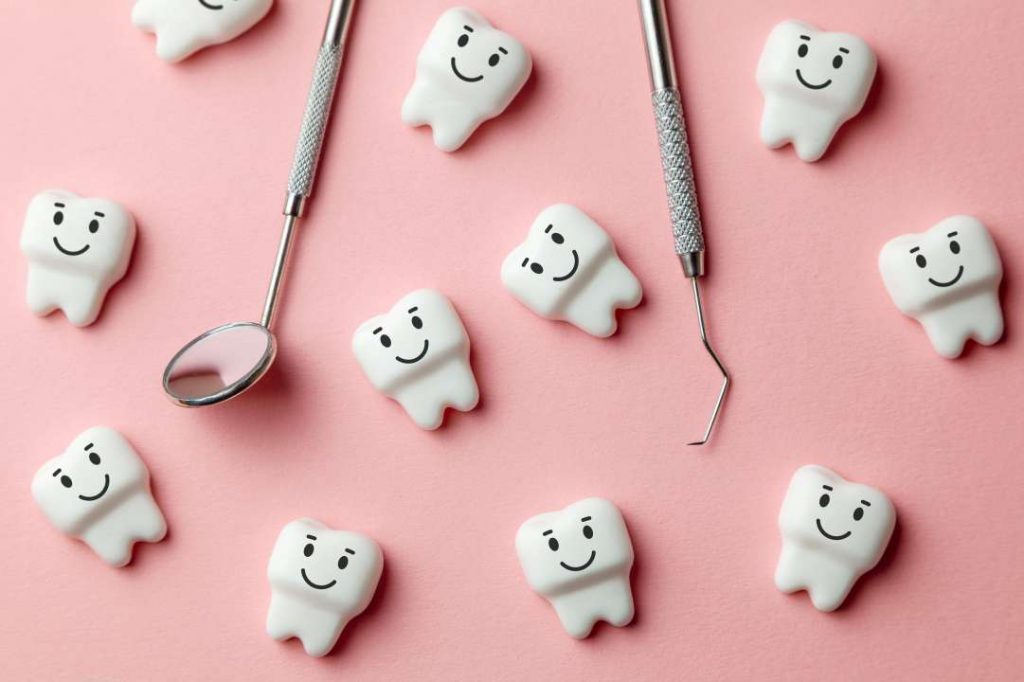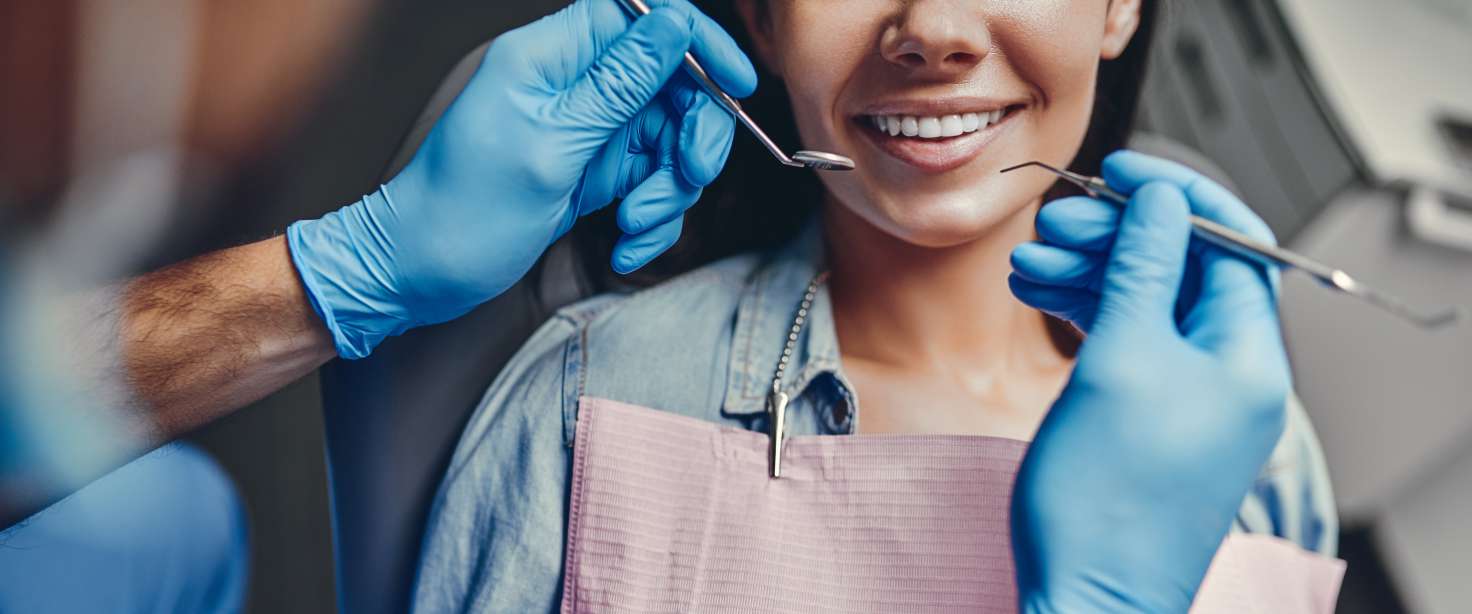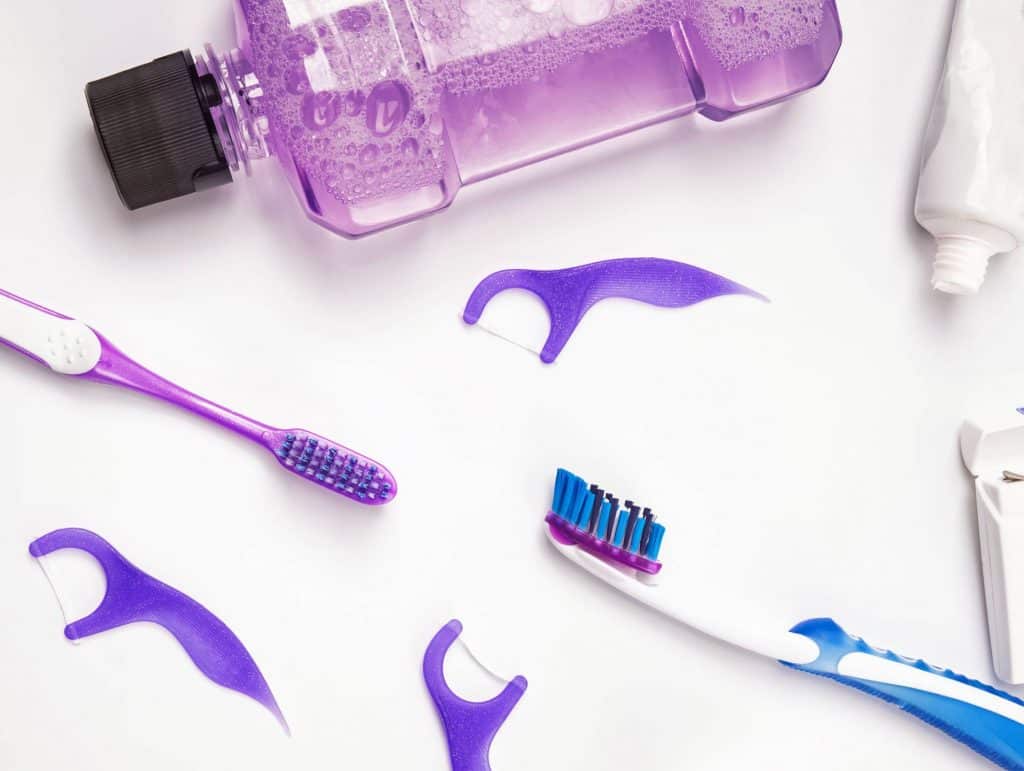At Midtown Dental, we can say with certainty that the number one way our patients neglect their oral health is by failing to keep a regular check-up schedule. Regular visits to your dentist are vital to maintaining your oral health –– even if you think everything is fine! Continue reading to find out why we recommend visiting us 1-2 times per year.
Your dentist can see what lies beneath the surface.
While you may not be experiencing any symptoms, there is a lot that could be happening with your teeth. As we age, our gums can begin to recede, often without us noticing. This can cause sensitive teeth, cavities, and more. The exposed tooth is far more susceptible to harm than the rest of the tooth and succumbs to damage more easily.
Your dentist will take x-ray images of your teeth to see what is happening below the surface, and they can even detect cavities forming between the teeth. Your dentist uses this technology to find and diagnose issues that are invisible to the human eye, such as bone density, softening between teeth, and damage to the teeth from trauma or bruxism.
Prevention is the key to oral health.
Dentists can detect underlying issues in your mouth, including inadequate oral hygiene habits, cavities forming, and more severe conditions we don’t often consider, such as oral cancer, disordered eating, and infection. In all cases, prevention is the best treatment, and this is only possible with regular visits to your dentist.
3 common oral conditions that can be avoided with regular dental check-ups.
-
Gum Disease
This is the cumulative result of tartar build-up. Caused primarily by inadequate oral hygiene habits which cause sticky plaque to form a hard acidic barrier on the teeth. This tartar irritates the gums and causes inflammation. Gingivitis, the beginning stages of gum disease, is fairly common and includes symptoms such as bleeding during brushing or eating, sensitive teeth, and reddened gums. Luckily, when caught in these early stages, the effects of gingivitis can be dramatically improved. Your dentist will be able to identify gingivitis and give you tips for improving your oral hygiene. Those with gingivitis may be asked to increase their visits to the dentist to track progress and healing.
-
Cavities
Cavities are often the result of the build-up of plaque, a sticky microbial coating that forms on the teeth. Tartar is the hardened plaque that forms after 72 hours with no brushing and can only be removed by the dentist. In tandem, plaque and tartar break down the enamel and create tiny openings that allow bacteria into the soft dentin layers of our teeth. Using x-ray and visual inspections, your dentist can prevent or mitigate the damage caused by a cavity with regular cleaning and fillings. While enamel damage is permanent, fillings offer a way to prevent further decay. It is essential to visit your dentist before cavities become more serious, and more costly interventions (such as crowns and root canals) are necessary.
-
Bruxism
This condition, often attributed to stress and as a side effect of some prescription medication, causes trauma to the teeth through clenching or grinding –– often during sleep. Your dentist can spot the tell-tale signs of this condition and help to mitigate it through several treatment options from a mouth guard, massage, and, in more extreme cases, botox.
With covid-19 protocols in place, you can visit us safely!
There’s no need to avoid your regular dental appointments during this time, as we strictly adhere to all covid-19 protocols. Your safety and oral health are our priorities. Schedule your appointment today and speak to your dentist about your oral care routine –– we’re here to answer all of your questions.





